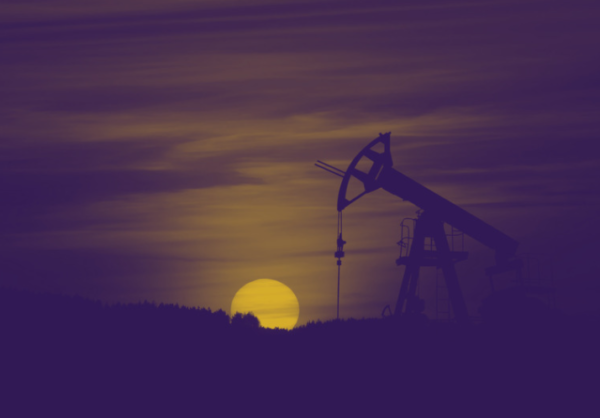
In context
The weekly column from OEMR to better understand EU-MENA relations.
EU-Algeria energy relations: towards greener energy dependence?
Written by Vicente Alves
Part II: Energy
As the largest gas producer in the African continent, Algeria is the EU’s third most important gas supplier. However, several factors – such as declining exports, reduced production, increasing internal demand and lack of investment – pressure the EU to redefine its approach to energy relations with Algeria. Recently, the EU has stepped up its investments in renewable energy production in the country, while also supporting market liberalisation efforts to attract foreign investment in the energy sector.
This column provides a short overview of EU-Algeria energy relations, main challenges, and recent policy developments.
Overview
Algeria has the largest verified natural gas reserves in North Africa, being also the largest gas producer in the continent. After Russia and Norway, Algeria is the third most important gas supplier to the EU, providing nearly 13.5% of the bloc’s annual gas imports (Tichý et al., 2020, p. 203).
While Algerian gas is less attractive in terms of price, quantity, and reach, it serves as an important alternative for Russian energy supply, thus playing a key strategic role in the European energy market. Indeed, despite several conflicts and setbacks in the relationship between the Maghrib country and the EU, its energy supply remains steady and uninterrupted, and thus more secure than Russian gas (Daum, 2020, pp. 15–16).
Nonetheless, several challenges arise in the Algerian energy sector, with strong implications for the EU. On the one hand, Algeria’s conventional gas exports to the EU have been in constant decline since 2004, against an over-abundance of cheaper Russian, Australian and American gas in the world market. On the other, internal factors impede a more competitive Algerian energy supply. Concretely, unattractive frameworks for external investment (within a state-led hydrocarbons sector), outdated and ineffective infrastructure, and an increase in internal gas consumption (consequently reducing available exports) are the key factors that contribute to Algeria’s stagnant gas supply (Daum, 2020, pp. 17–18).
In this context, the EU is pressured to redefine and adapt its energy relations with Algeria, as these challenges pose a serious risk for the energy security of some Member-States (i.e. Portugal, Spain, Italy and France), as well as the bloc’s dependence on Russian supply (Grigorjeva, 2016).
Recent developments
In 2019, Algeria has sought to ease external investment in the sector by reducing tax rates, while, nonetheless, maintaining the restrictive “49/51” rule in the sector, according to which 51% of capital must be in national, as to ensure sovereignty over resource use (HRVP, 2020, pp. 11-12).
Investment in renewable energy production has been one of the key vectors of the EU’s renewed Strategic Energy Partnership (2015) with Algeria. Profiting from the country’s substantial solar energy potential, and other renewable resources like wind and biomass, Algeria has an impetus to invest in clean energies with EU technical and financial support (Daum, 2020, p. 22). However, efforts have been rather timid, with a single programme of 11 million euros being implemented with the aim of improving energy efficiency and RES production in the country (HRVP, 2020, pp. 11–12).
Nevertheless, the recent Economic and Investment Plan for the Southern Neighbourhood emphasises the need to invest in the untapped renewable energy potential in Algeria to ensure a sustainable energy transition and a reduced dependency on the hydrocarbon sector (HRVP, 2021b, p. 6), and increased policy efforts can be expected in this field in the near future, as the EU’s energy dependence is evermore in the spotlight. With the recent conflict in Ukraine shedding light on the EU’s strategic energy overdependence on Russia, Algerian authorities have shown interest in increasing gas exports to the EU market (Middle East Eye, 2022), while EU countries start to view their African counterparts as key players for Europe’s energy transition (Fox, 2022).
With Algeria, the EU can expect an increased energy supply, but this will remain limited by outdated infrastructures and rising internal demand (Fox, 2022). As such, without a strong investment in technical support and infrastructure development, the EU is unlikely to find in the Southern Neighbourhood a solution to solve its Russian overdependence in the short to medium term.
References
Daum, B. (2020). Energy Relations of the EU and its Southern Neighborhood. In M. Knodt & J. Kemmerzell (Eds.), Handbook of Energy Governance in Europe (pp. 1–32). Springer International Publishing. https://doi.org/10.1007/978-3-319-73526-9_58-1
Fox, B. (2022). African states eye EU gas opportunity from Ukraine crisis. EURACTIV. https://www.euractiv.com/section/africa/news/african-states-eye-eu-gas-opportunity-from-ukraine-crisis/
Grigorjeva, J. (2016). Starting a New Chapter in EU-Algeria Energy Relations: A proposal for a targeted cooperation (Policy Paper No. 173). Jacques Delors Institut Berlin.
HRVP. (2020). Rapport sur l’état des relations UE-Algérie dans le cadre de la PEV renouvelée: Avril 2018 – Août 2020. SWD (2020) 285 Final. European Commission.
HRVP. (2021a). Renewed Partnership with the Southern Neighbourhood: A new Agenda for the Mediterranean. SWD(2021) 23 Final. European Commission.
HRVP. (2021b). Renewed Partnership with the Southern Neighbourhood Economic and Investment Plan for the Southern Neighbours. JOIN (2021) 2 Final. European Commission.
Middle East Eye. (2022). Algeria offers to supply EU with extra gas amid Russia-Ukraine crisis. Middle East Eye. https://www.middleeasteye.net/news/algeria-offers-supply-eu-extra-gas-amid-russia-ukraine-crisis
Tichý, L., Mazač, J., & Dubský, Z. (2020). The EU Actorness in the Energy Relations with Algeria. Insight Turkey, 22(4), Article https://www.insightturkey.com, 201–227. https://doi.org/10.25253/99.2020224.12

 The ’Ndrangheta’s Infiltration and Threat to European Institutions
The ’Ndrangheta’s Infiltration and Threat to European Institutions  From Paper to Practice: How Grassroots Norms Undermine Gender Rights in Pakistan
From Paper to Practice: How Grassroots Norms Undermine Gender Rights in Pakistan  Exploited Childhoods: The Role of Global Corporations in Perpetuating and Mitigating Child Labour
Exploited Childhoods: The Role of Global Corporations in Perpetuating and Mitigating Child Labour  Human Rights Challenges in Addressing SLAPPs in Media, NGOs and Journalism in the EU
Human Rights Challenges in Addressing SLAPPs in Media, NGOs and Journalism in the EU 


